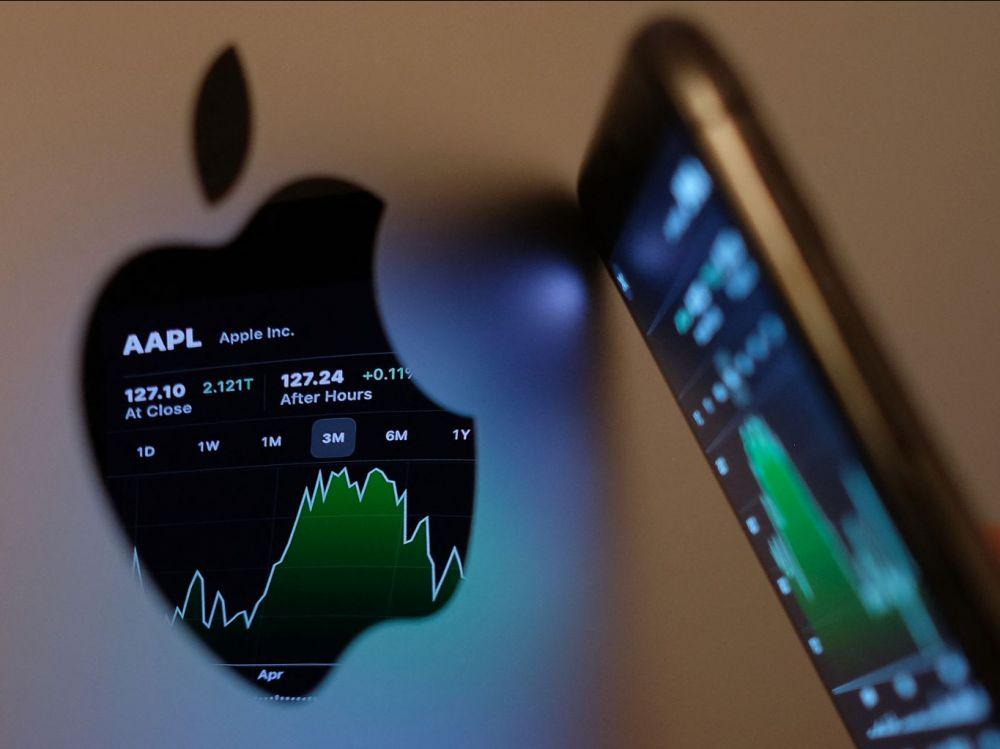“Do not open the iPhone or attempt to repair the iPhone yourself.” The phrase is still in Apple's smartphone security manual, available online, and yet will soon be obsolete. The apple brand will market from 2022, in the United States, then in Europe, spare parts for its iPhones 12 and 13, tools, and a manual, to allow its users to repair their smartphone themselves.
Apple explains that this program called Self service repair is a continuation of the brand's action in recent years. After supplying a network of 2,800 independent repairers in 2019, in addition to its own repair centers, Apple would take the next step, allowing users direct access to spare parts.
"We're starting from a very long way"
But on the side of the Right to Repair network in Europe, which defends the right to repair, the story is different: “It's incredible, s surprised Chloé Mikolajczak, campaign manager. Again, a few weeks ago, the company opposed the repair. It allowed almost non-existent access to spare parts, and lobbied against repair regulations in the United States. This is good news, we are starting from a very long way.”
For Hugues Poissonnier, director of the Institute for Research and Innovation in Purchasing Management, the shift is explained above all by a desire to meet “customer expectations”. The professor at the Grenoble School of Management explains: “More and more customers have asked for spare parts in recent years. The impossibility of repairing its devices has been strongly criticized by brands, for its environmental footprint. This irreparability was intended to regularly buy devices”.
Read alsoRepairability: the brands that are doing the best… and the others
International pressure

The choice to provide access to spare parts would improve the image of the brand, explains the economist: “Apple takes a competitive advantage over Samsung, for example, by taking on an image of responsibility, of lower environmental footprint. It comes across as a less revenue-seeking business.”
Another reason that could explain Apple's choice: pressure from international bodies. Last spring, the FTC, the American competition authority, had committed to a “right to repairability”, pointing in particular to Apple. And in 2019, new European directives were adopted in favor of eco-design. “They may have wanted to anticipate the legislation, to be the good guys,” laughs Chloé Mikolajczak, from the Right to Repair network.
"We rarely sell spare parts above 200 euros"
Some technology enthusiasts remain cautious, like the high-tech specialist YouTuber, Leo Techmaker, who points to two strangers to this novelty: “the price of spare parts, and Apple's control over the components”.
On the price side, the founder and manager of a French smartphone repair brand explains: “We rarely sell spare parts above 200 euros. Otherwise, the customer is afraid, and prefers to do it in store, with a professional, for 40 euros more. It's when you have a screen in spare parts at 50 euros and a repair at 100 euros that the question arises." Chloé Mikolajczak notes: "If the cost of the total repair is above 30% of the total price of a product, people even favor the replacement of the product.” Apple does not yet advance on the price of the spare parts that will be distributed.
Towards Apple's takeover of the repair market?
As for "Apple's control over components" mentioned by the YouTuber, this refers to a controversy following the implementation iPhone 13 market. The smartphone screen could not be replaced by screens from a third-party repairer, but had to be replaced by an Apple-approved screen, otherwise Face ID technology would be lost. This particularity has since been erased, but the fear of Apple's desire for a monopoly on spare parts remains real. “In this case, Apple would put its hands on the repair shops”, worries the French repair company manager. The apple brand does not comment, for its part, on these suspicions.
Even without a technological technique to obtain a monopoly on spare parts, Apple could well do well, as economist Hugues Poissonnier explains: “Apple parts can become a guarantee of quality, of conformity. Customers might turn to them rather than third-party products.”
An offer aimed above all at insiders
Last black point pointed out by Right to repair: the repairability of iPhones. “If the devices are complicated simply to open, access to self-repair remains very limited,” laments Chloé Mikolajczak. Apple clarifies that self-repair is only for users who feel capable of practicing it. The founder of the French smartphone repair company explains: “For 10 years, we have helped more than 100,000 customers. Self-repair is a niche market, but on a huge population. In terms of proportion among smartphone users, we are below 10%.
All eyes therefore remain on 2022, when we will see more clearly about the prices and operation of the Self Service Repair program. And everyone agrees to see in this announcement a first step forward. “It can make you want to repair your devices!” enthuses YouTuber Leo Techmaker. And for Chloé Mikolajczak, Apple is showing other big brands that self-repair is not a dirty word. On the side of the apple brand, it is announced that after the iPhones, the Self Service Repair program will open to Macs.
